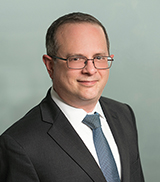 A California Court of Appeal recently decided that CBS’s decision to hire a young, attractive woman as opposed to an older man as a weather anchor constitutes protected free speech. Hunter v. CBS Broadcasting, Inc., 2013 Cal. App. LEXIS 997 (B244832) (Nov. 18, 2013). Kyle Hunter filed an employment discrimination complaint in March 2012 against two local CBS television stations alleging that they had repeatedly shunned him for various weather anchor positions because of his age and gender. Hunter claimed that CBS had a plan to turn prime time weather broadcasting over to younger attractive females and engaged in discriminatory practices in their employment decisions.
A California Court of Appeal recently decided that CBS’s decision to hire a young, attractive woman as opposed to an older man as a weather anchor constitutes protected free speech. Hunter v. CBS Broadcasting, Inc., 2013 Cal. App. LEXIS 997 (B244832) (Nov. 18, 2013). Kyle Hunter filed an employment discrimination complaint in March 2012 against two local CBS television stations alleging that they had repeatedly shunned him for various weather anchor positions because of his age and gender. Hunter claimed that CBS had a plan to turn prime time weather broadcasting over to younger attractive females and engaged in discriminatory practices in their employment decisions.
California’s anti-SLAPP statute requires a court to strike claims brought against an individual that arise from acts in furtherance of the right to free speech in connection with a public issue. There is a two-step process to determine whether an anti-SLAPP motion should be granted. First, the court decides whether the defendant has made a threshold showing that the challenged cause of action arises from protected activity. Second, if the defendant makes this showing, the court then decides whether the plaintiff has demonstrated a reasonable probability of prevailing at trial on the merits of its challenged causes of action. However, if the defendant does not meet its burden on the first step, the court should deny the motion and does not need to address the second step.
In Hunter’s case, the trial court held that CBS did not make the showing under the first step. Thus, the trial court concluded that CBS’s hiring decision did not arise from protected activity. The Court of Appeal disagreed, noting that the labeling of the plaintiff’s claim as a case about employment discrimination is not definitive and that courts must examine the principal thrust or gravamen of the cause of action. In other words, courts must distinguish between the acts underlying a plaintiff’s cause of action and the claimed illegitimacy of those acts.
In reversing the trial court, the Court equated CBS’s selections of its weather anchors to “casting decisions,” which are a form of protected activity. The Court of Appeal distinguished two discrimination cases cited by Hunter where an anti-SLAPP motion was denied. In those cases, the alleged protected activity was incidental to the discrimination causes of action, whereas in Hunter’s case, it was the very conduct on which the claims were based – the gravamen of the cause of action. The Court further stated that even if the act of hiring a weather anchor by itself does not qualify as an exercise of free speech (a question the Court refrained from deciding), California’s anti-SLAPP statute also extends to conduct undertaken “in furtherance” of constitutionally-protected activities. The Court reasoned that hiring a weather anchor was at least an act in furtherance of the exercise of protected activities under the anti-SLAPP statute and Hunter did not present any argument to the contrary.
The Court of Appeal remanded the case to the trial court to decide the second part of the anti-SLAPP test – whether the plaintiff can demonstrate a reasonable probability of prevailing at trial on the merits of its challenged cause of action. Those proceedings also promise to be interesting. Is a news station permitted to discriminate on the basis of looks? Gender? Age?
As they say on the news, stay tuned . . .